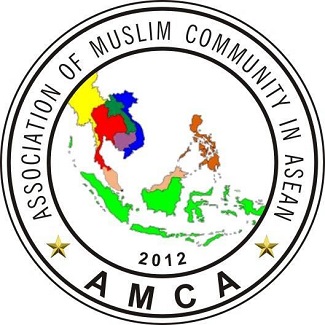Islamic Parenting Methods to Increase Resilience Capability in Foster Children at Bina Insani Orphanage, Moyudan, Sleman, Indonesia
DOI:
https://doi.org/10.18196/jiee.v2i2.50Keywords:
Method, Islamic parenting style, ResilienceAbstract
Orphanages function as a substitute for families to meet children's needs during development. Foster children living in orphanages are vulnerable to resilience. Therefore, appropriate parenting methods are needed for children living in orphanages. This research aims to identify Islamic parenting methods to increase the resilience abilities of foster children because children living in orphanages are vulnerable to this. This research also analyzes the supporting and inhibiting factors in implementing Islamic parenting methods to increase the resilience abilities of foster children. This qualitative research used a descriptive approach. The data were collected through observation, interviews, and documentation. The validity of data was tested through triangulation of techniques and sources. Data analysis was carried out using descriptive analysis, namely reducing data, presenting data, and concluding data. The location of this research was at the Bina Insani Orphanage in Moyudan, Sleman. The respondents of this study were 3 caregivers and 4 foster children. This research found that: 1) Islamic parenting methods to improve the resilience abilities of foster children consist of the example method, habituation method, advice method, and attention method. 2) Supporting factors in implementing Islamic parenting methods to increase the resilience abilities of foster children consist of the role of administrators and teachers, the role of donors, and the available facilities and infrastructure. The inhibiting factors are a lack of awareness within the child, a lack of parenting cooperation between parents and guardians of the child and the orphanage, and negative effects from the external environment because foster children go to school outside the orphanage. Islamic parenting methods can be applied in educational institutions in the student's learning process to build good character and resilience. This research can be a basis for educational institutions to establish close collaboration with families in implementing Islamic parenting patterns.
Downloads
References
Ayun, Q. (2017). Pola Asuh Orang Tua dan Metode Pengasuhan dalam Membentuk Kepribadian Anak. ThufuLA: Jurnal Inovasi Pendidikan Guru Raudhatul Athfal, 5(1), 102–122. https://doi.org/10.21043/thufula.v5i1.2421
Azwar, S. (2010). Research methods. Student Library.
Besari, A. (2022). Family Education as the First Education for Children. Jurnal Paradigma, 14(2), 218–226. https://doi.org/10.53961/paradigma.v14i2.124
Elvina, E., Ritonga, M., & Lahmi, A. (2021). Islamic Parenting and Motivation from Parents and Its Influence on Children's Ability to Read the Quran. Jurnal Tarbiyatuna, 12(2), 121–134. https://doi.org/10.31603/tarbiyatuna.v12i2.4996
Fachmi, T., Umayah, Hasbullah, & Juhji. (2021). Islamic Parenting Pattern: Between Transformation of Theological Values and Internalization of Mahmudah Character. Pai Geneology: Journal of Islamic Religious Education, 8(2), 423–432. https://jurnal.uinbanten.ac.id/index.php/geneologi/article/view/5340
Fadhallah, RA (2021). Interview. Unj Press.
Fajarrini, A., & Umam, A. N. (2023). Dampak Fatherless Terhadap Karakter Anak Dalam Pandangan Islam. Abata: Jurnal Pendidikan Islam Anak Usia Dini, 3(1), 20–28. https://doi.org/10.32665/abata.v3i1.1425
Khilmiyah, A. (2016). Qualitative Research Methodology. Blue Ocean.
Khoirun Nisa, M. (ND). A Study of Children's Resilience in Sidoarjo Orphanages. A Study of Children's Resilience in Sidoarjo Orphanages.
Mekarisce, A. A. (2020). Data validity checking techniques in qualitative research in the field of public health. Public Health Scientific Journal: Public Health Community Communication Media, 12(3), 145–151.
Mustafa, MR, Nuzulia, F., & Hadiyati, R. (2019). The Relationship Between Self-Disclosure and Resilience in Adolescents in the Darussalam Orphanage. In Empathy Journal (Vol. 8, Issue 1).
Mustafa, M. R., & Hadiyati, F. N. R. (2019). Hubungan Antara Self Disclosure dengan Resiliensi Pada Remaja di Panti Asuhan Darussalam. Jurnal Empati, 8(1), 192–199. https://doi.org/10.14710/empati.2019.23594
Nanda. (2016). A. Islamic Parenting Patterns. 4(1), 1–23.
Nashori, F., & Saputro, I. (2021). Psychology of Resilience. In Indonesian Islamic University (Issue 1).
Octavia, S. A. (2020). Learning Motivation in Adolescent Development. Deepublish.
Purwandari, S., Husna, A. N., & Tawil, T. (2022). Islamic Parenting Model to Increase Family Literacy: A Mixed Method Study. International Journal of Islamic Educational Psychology, 3(2), 111–129. https://doi.org/10.18196/ijiep.v3i2.14039
Rahmawati, M. (2019). Mendidik anak usia dini dengan berlandaskan pemikiran tokoh islam Al-Ghazali. Al Fitrah: Journal Of Early Childhood Islamic Education, 2(2), 274–286.
Ruswahyuningsi, M. C., & Afiatin, T. (2015). Resiliensi pada remaja jawa. Gadjah Mada Journal of Psychology (GamaJoP), 1(2), 96–105. https://doi.org/10.22146/gamajop.7347
Sattler, K., Yoon, S., & Lutolli, A. (2024). Trajectories of resilience among young children involved with child protective services. Development and Psychopathology, 36(1), 467–477. https://doi.org/10.1017/S095457942200133X
Schenkels, A., & Mutsaers, P. (2019). Intensive Islamic Parenting In Neoliberal Times? https://www.researchgate.net/publication/342178225
Sinca, D. (2022). Attitudes of Fatherless Women in Choosing a Potential Life Partner (Case Study in Pino Raya, South Bengkulu Regency).
Sugiyono. (2015). Educational Research Methods qualitative, quantitative and R&D approaches. Alphabet.
Sugiyono. (2018). Qualitative Research Methods. Alphabet.
Sumayah, S. S. (2020). Parenting In The Qur'anic Perspective. Jurnal Varidika, 32(2), 87–96. https://doi.org/10.23917/varidika.v32i2.11880
Supriatna, I., & Herman, H. (2020). Pendidikan Pramuka Dalam Menanamkan Sikap Jiwa Kepemimpinan. TANGGAP: Jurnal Riset Dan Inovasi Pendidikan Dasar, 1(1), 11–19. Retrieved from https://jurnal.stkippgritrenggalek.ac.id/index.php/tanggap/article/view/38
Suwaid, M. (2010). Prophetic Parenting How the Prophet Saw Educated Children. Pro-U Media.
Tillott, S., Weatherby-Fell, N., Pearson, P., & Neumann, M. M. (2022). Using Storytelling To Unpack Resilience Theory In Accordance With An Internationally Recognized Resilience Framework With Primary School Children. Journal of Psychologists and Counsellors in Schools, 32(1), 134–145. https://doi.org/10.1017/jgc.2021.5
Wahidah, E. Y. (2018). Resiliensi Perspektif Al-Quran. Jurnal Islam Nusantara, 2(1), 105.
Wasono, C. W. (2019). Pengaruh Resiliensi terhadap Harga Diri Remaja di Panti Asuhan Yatim dan Tunanetra Muhammadiyah Purworejo. Acta Psychologia, 1(1), 1–14. https://doi.org/10.21831/ap.v1i1.43466
Yusuf, S., & Zainuddin, N. (2022). Transfer Of Character In The Digital Era (Holistic Analysis Of Education Institutions In Indonesia). TA'DIBUNA: Jurnal Pendidikan Agama Islam, 5(1), 11–20. http://dx.doi.org/10.30659/jpai.5.1.11-20
Zaini, PM, Zaini, PM, Saputra, N., Publisher, Y., Zaini, M., Lawang, KA, & Susilo, A. (2023). Qualitative Research Methodology (Issue May).
Zur Raffar, I. N. A., Hamjah, S. H., Hasan, A. D., & Dahlan, N. N. N. (2021). Parenting Skills According to The Islamic Perspective Towards Family Well-Being. Samarah: Jurnal Hukum Keluarga dan Hukum Islam, 5(2), 552–578. https://doi.org/10.22373/sjhk.v5i2.9576
Downloads
Published
How to Cite
Issue
Section
License
Copyright (c) 2024 Journal of Islamic Education and Ethics

This work is licensed under a Creative Commons Attribution-ShareAlike 4.0 International License.





